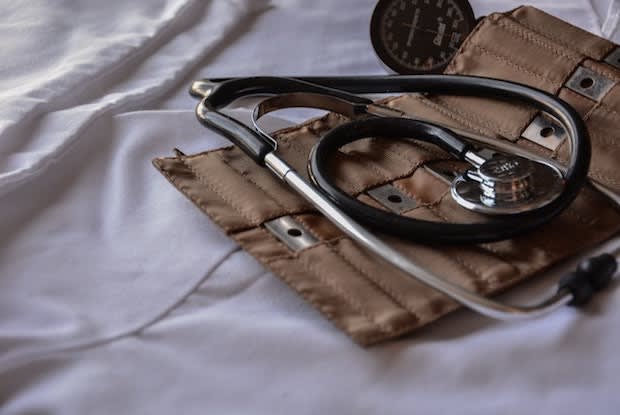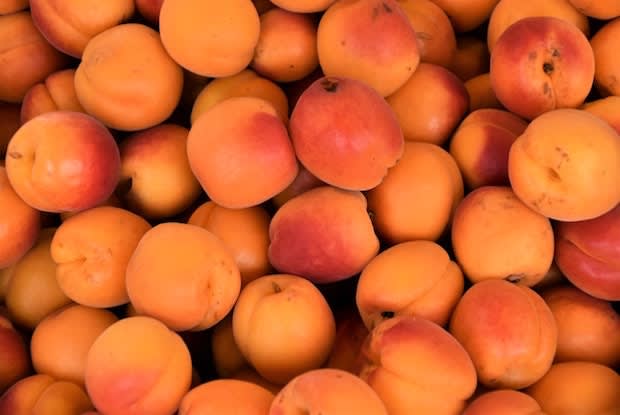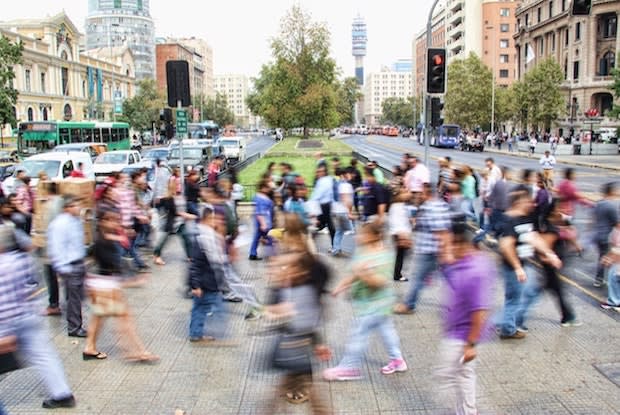Table of Contents
I. Blood Pressure in the United States
Blood Pressure in the United States
Every year, the rate of heart attacks and strokes rises in America. Over 103 million people in the United States have high blood pressure, about half of all adults. The American Heart Association found that the death rate from high blood pressure increased 38 percent from 2005 to 2015. High blood pressure, or hypertension, is the leading cause of cardiovascular disease-related deaths. [1]
High blood pressure is a serious medical condition and requires treatment before it becomes dangerous. There are usually no symptoms to signify hypertension, so it is essential to see your doctor regularly to check your blood pressure. If it is high, that means that your blood is pushing harder against the arterial walls, putting a strain on the heart and leading to possible complications.
Your doctor may prescribe medications like Toprol XL (metoprolol XL), Bumex (bumetanide), Benicar (olmesartan), and Aldactone (spironolactone) to treat hypertension. These medications reduce blood pressure, but you can also do several things to help your heart condition. Read on to learn more about natural ways to control blood pressure. [1]
Sodium is present in the majority of foods. If you consume too much salt, then you may develop hypertension. The recommended daily intake of sodium for children 14 years and older is less than 2,300 milligrams per day. One teaspoon of table salt contains 2,300 mg of sodium. Your doctor may recommend a lower dose, depending on the condition of your heart. [2] Sodium intake accumulates throughout the day because it is present in many ready-to-eat and processed foods. If you are experiencing high blood pressure, your doctor may recommend keeping a food journal and monitoring the amount of sodium you consume in one day. You might be surprised to see just how much salt you eat. Foods like cured meats, pizza, fresh and processed poultry, soups, sandwiches, burgers, cheese, bread, and pasta are high-sodium foods. If you want to lower your sodium, you can do the following things: The foods you consume can have a massive impact on the health of your heart. Many doctors recommend adding more potassium to your diet to lessen the effects of sodium. If the arteries are hardened or narrowed, then potassium can ease tension in the blood vessel walls. This can help lower blood pressure and reduce the risk of kidney disease. A potassium-rich diet is recommended for those with a blood pressure above 120/80. Talk to your doctor before starting a high potassium diet. [3] The recommended potassium intake is around 4,700 milligrams a day. Luckily, high potassium foods are fairly healthy and beneficial to your overall diet. A potassium-rich diet can be helpful but should be implemented alongside other efforts to lower blood pressure. If you already have kidney problems, it is important not to overeat potassium-heavy foods. The kidneys may not remove all the potassium from the blood and lead to a dangerous build-up. If your doctor approves of eating potassium-rich foods, you can try: Beverages, as well as food, can impact your blood pressure. Overindulging in alcohol and caffeinated drinks can increase your risk of hypertension. If you consume more than three alcoholic drinks in a sitting, it can temporarily increase blood pressure. This side effect may become permanent with repeated binge drinking. If you are a heavy drinker, it is a good idea to reduce your alcohol intake slowly. If you quit cold-turkey, it could result in a severe blood pressure spike for a few days. Moderate drinking is considered two drinks a day for men under 65, and one drink a day for women of any age. [4] Drinking too much caffeine can also raise your blood pressure. If you rarely consume caffeine, it may be dangerous to start if you are at risk of blood pressure issues. If you consume coffee every day, it is unlikely that your blood pressure will be affected. If you are worried about caffeine's effect on your arteries, check your pressure 30 minutes after drinking a caffeinated drink. The pressure will increase 5 to 10 mm Hg if you are sensitive to caffeine. [5] Along with diet, stress levels can severely impact blood pressure. Stress hormones (cortisol) are released when you are in a stressful situation, which causes your heart to beat faster and blood vessels to narrow. Stress can also lead a person to partake in unhealthy behaviors like overeating, alcohol consumption, and smoking. If your stress increases your blood pressure, you are at a higher risk of experiencing a heart attack or stroke. Regardless of the cause of your blood pressure, it is in your best interest to keep the stress in your life under control. Over time, prolonged stress can result in damaged arteries and, eventually, heart disease. Heart disease is also attributed to other stress-inducing conditions like isolation from friends or family, depression, and anxiety. Stress-reducing activities can include: Exercise: Exercising regularly can improve the health of your cardiac muscles as well as reduce stress. Regular exercise (about 150 minutes a week) can significantly lower your blood pressure. Ask your doctor if you can start a new exercise regime. Simplify your schedule: All of us feel busy in our day-to-day lives, but sometimes this busyness can take a toll on the body's health. If you are overly stressed, you may want to simplify your everyday activities and cut out unnecessary things or things that take up too much of your time. Yoga and meditation: Relaxation techniques can impact your blood pressure. If you can center yourself and meditate using apps or a yoga class, you can lower your heart rate and prevent dangerous spikes in your blood pressure. [5] The content provided in this article is based on thorough research and in some cases, reviewed by a medical professional. Our goal for the information is to provide helpful, general health informational. It is not intended as a substitute for professional medical advice.
Reduce Sodium
Eat Potassium-Rich Foods

Watch Your Beverages
Reduce Stress

